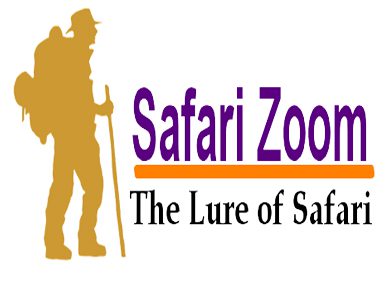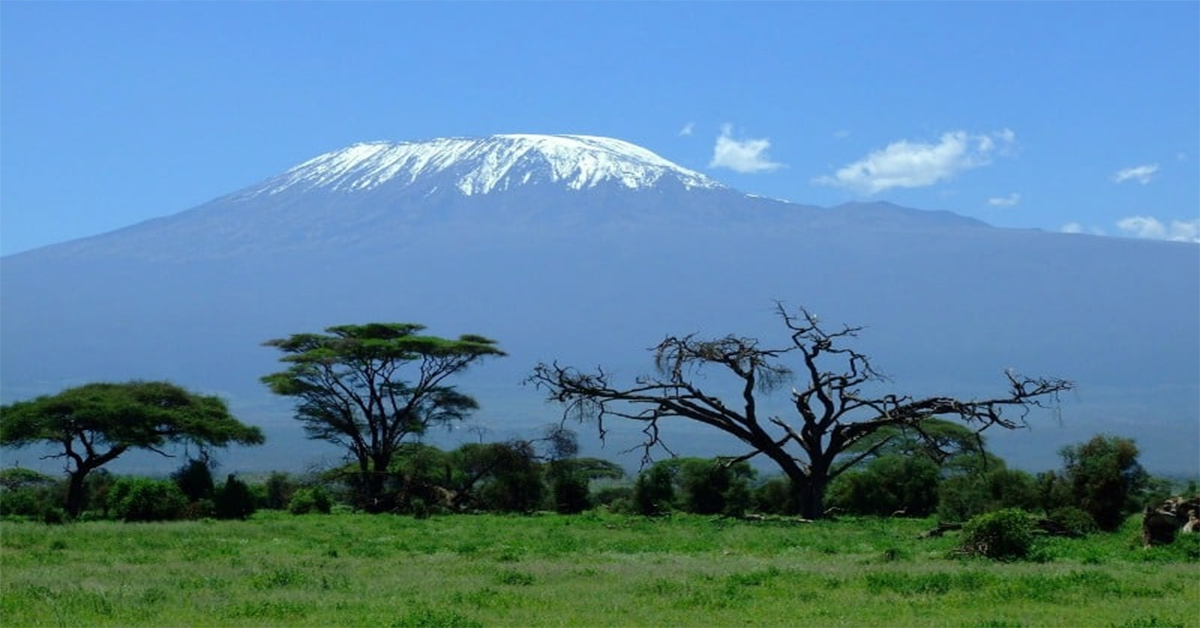Unlocking Investment Potential in Tanzania’s Tourism: A Safari and Beyond Guide
Tanzania is a land of natural beauty, rich culture, and diverse wildlife. It is home to some of the world’s most famous national parks and reserves, including the Serengeti, Ngorongoro Crater, and Selous Game Reserve. Tanzania’s tourism industry has been growing steadily over the years, and it is now one of the country’s major economic sectors, contributing significantly to the country’s GDP and providing employment opportunities to thousands of people. According to Tanzania Investment Centre (TIC), Tanzania’s tourism industry accounts for about 24.0 % of its exports and 17.2% of GDP.
However, despite its enormous potential, Tanzania’s tourism industry is still largely untapped. There is a need for more investment in the sector to unlock its full potential and take advantage of the growing demand for unique and authentic travel experiences. In this article, we will explore the investment opportunities in Tanzania’s tourism sector, with a focus on safari tourism, marine and coastal tourism, and cultural and heritage tourism. We will also discuss the challenges and risks associated with investing in the sector, as well as the government policies and incentives that are in place to promote tourism development.
Key Takeaways
- Tanzania’s tourism industry is a major economic sector that contributes significantly to the country’s GDP and provides employment opportunities to thousands of people.
- The sector has enormous potential, but more investment is needed to unlock its full potential and take advantage of the growing demand for unique and authentic travel experiences.
- Safari tourism, marine and coastal tourism, and cultural and heritage tourism are some of the investment opportunities in Tanzania’s tourism sector.
Overview of Tanzania’s Tourism Sector
Tanzania is a country located in East Africa, known for its vast wilderness areas, including the Serengeti National Park, the Ngorongoro Conservation Area, and the Selous Game Reserve. The country offers a diverse range of attractions, including wildlife safaris, beach holidays, and cultural tourism. The tourism sector is a significant contributor to the country’s economy, accounting for about 17% of its GDP in 2020, according to the World Travel and Tourism Council.
Tourism Statistics and Growth
Tanzania’s tourism sector has been growing steadily over the years. In 2023, the country recorded a record-breaking 1,808,205 tourist arrivals, representing a 24.3% increase from the previous year. The sector’s receipts also reached a record-high of USD 3,368.7 million in 2023, up from USD 2,527.8 million in 2022. This increase is consistent with the country’s goal of reaching $6 billion in tourism revenue by 2025, which assumes the influx of five million tourists annually, according to PwC.
Key Attractions and Destinations
Tanzania’s tourism industry offers a variety of attractions, including wildlife safaris, beach holidays, and cultural tourism. The country is home to some of the world’s most famous national parks, including the Serengeti National Park, which is renowned for the annual wildebeest migration. Other popular parks include the Ngorongoro Conservation Area, the Selous Game Reserve, and the Tarangire National Park.
Apart from wildlife safaris, Tanzania’s coastline offers some of the best beaches in Africa, with Zanzibar being the most famous. The archipelago is known for its white sandy beaches, turquoise waters, and rich cultural heritage. Other popular beach destinations include Dar es Salaam, Bagamoyo, and Pangani.
Tanzania’s tourism sector is a significant contributor to the country’s economy, with steady growth over the years. The country offers a diverse range of attractions, including wildlife safaris, beach holidays, and cultural tourism. The Serengeti National Park, Ngorongoro Conservation Area, and Zanzibar are some of the key attractions and destinations in the country.
Investment Opportunities in Safari Tourism
Tanzania’s wildlife and natural resources provide a unique opportunity for investment in safari tourism. The country’s diverse landscapes and wildlife make it an attractive destination for tourists seeking a once-in-a-lifetime experience. Tanzania is home to some of the world’s most iconic wildlife reserves, including the Serengeti National Park and the Ngorongoro Conservation Area.
Safari Lodges and Camps
Investment opportunities in safari tourism include the development of new safari lodges, Hotels, Tented camps and ordinary camps. These facilities provide accommodation for tourists visiting Tanzania’s wildlife reserves and national parks. Safari lodges and camps are typically located in remote areas, providing guests with an immersive experience in the heart of nature. Investors can capitalize on the growing demand for eco-tourism by developing sustainable safari lodges and camps that minimize their impact on the environment.
Wildlife Conservation Initiatives
Another investment opportunity in safari tourism is wildlife conservation initiatives. Tanzania’s wildlife and natural resources are under threat from poaching, habitat loss, and climate change. Investors can support conservation efforts by funding anti-poaching patrols, supporting community-based conservation programs, and investing in sustainable tourism practices. By supporting conservation efforts, investors can help protect Tanzania’s unique wildlife and natural resources for future generations.
Tanzania’s safari tourism industry offers a range of investment opportunities, from the development of new safari lodges and camps to supporting wildlife conservation initiatives. Investors can capitalize on the growing demand for eco-tourism by developing sustainable tourism practices that minimize their impact on the environment. By investing in Tanzania’s safari tourism industry, investors can support the country’s economic development while preserving its unique wildlife and natural resources.
Marine and Coastal Tourism Development
Tanzania’s coastline stretches over 1,424 kilometers, and the country has some of the most pristine beaches in the world. Marine and coastal tourism is a significant contributor to Tanzania’s tourism industry, with the potential to unlock even more investment opportunities.
Beach Resorts and Aquatic Activities
Tanzania’s coastal areas offer a wide range of beach resorts and aquatic activities for tourists. The country’s beaches are well-known for their white sand, crystal-clear waters, and coral reefs. Tourists can enjoy activities such as snorkeling, scuba diving, fishing, and sailing. Additionally, beach resorts offer various amenities such as spas, restaurants, and bars.
Marine Conservation and Sustainable Practices
Marine conservation and sustainable practices are crucial for the long-term viability of Tanzania’s marine and coastal tourism industry. The Tanzanian government has implemented various policies to promote sustainable practices and protect the marine ecosystem. For example, the Marine Parks and Reserves Act of 1994 established marine parks and reserves to protect marine life and promote sustainable tourism.
Tourism operators are also taking steps to promote sustainable practices. For instance, some resorts have implemented measures such as reducing plastic waste, using renewable energy, and promoting local employment. These practices not only benefit the environment but also attract eco-conscious tourists who prefer to support sustainable tourism.
Tanzania’s marine and coastal tourism industry has immense potential for investment and growth. The country’s beautiful beaches, diverse marine life, and commitment to sustainable practices make it an attractive destination for tourists. By promoting sustainable practices and investing in infrastructure, Tanzania can unlock even more investment opportunities in this sector.
Cultural and Heritage Tourism Expansion
Tanzania is home to a rich cultural heritage that dates back centuries. The country’s diverse ethnic groups have distinct cultural practices, which have been preserved over time. In recent years, cultural and heritage tourism has become increasingly popular in Tanzania, with many tourists eager to experience the country’s unique cultural offerings. The Tanzanian government has recognized the potential of cultural and heritage tourism and has taken steps to expand this sector.
Cultural Villages and Tours
One way Tanzania has expanded its cultural and heritage tourism is through the establishment of cultural villages and tours. These villages are designed to give tourists an authentic experience of Tanzania’s diverse cultures. Visitors can interact with locals, learn about traditional practices, and even participate in cultural activities such as dancing and cooking. The cultural villages also provide an opportunity for locals to showcase their traditions and generate income from tourism.
Cultural tours are another way tourists can experience Tanzania’s culture. These tours take visitors to historical sites, museums, and other cultural attractions. Tourists can learn about Tanzania’s history, art, music, and more. These tours also provide opportunities for locals to share their knowledge and generate income from tourism.
Historical Sites Preservation
Tanzania has a rich history, and many historical sites have been preserved to showcase the country’s past. The government has recognized the importance of preserving these sites and has taken steps to ensure their conservation. For example, the Olduvai Gorge is a UNESCO World Heritage Site and is home to some of the oldest human remains ever discovered. The Tanzanian government has taken steps to protect this site and promote its conservation.
In addition to preserving historical sites, the Tanzanian government has also invested in the restoration of historical buildings. For example, the Old Boma building in Bagamoyo has been restored to its former glory and now serves as a museum. The building is a testament to Tanzania’s colonial past and provides tourists with an opportunity to learn about the country’s history.
Tanzania’s cultural and heritage tourism sector has great potential for growth. The government has recognized this potential and has taken steps to expand this sector. Through the establishment of cultural villages and tours, and the preservation of historical sites and buildings, Tanzania is well-positioned to attract tourists interested in experiencing the country’s unique cultural offerings.
Other Investment Opportunities
Other Investment Opportunities Includes: (Balloon safaris, Canopy walkways, Cable car safaris, Horse Riding, Caravaning, Trail Walk Assistance, Rescue Operation Services, Restaurants, coffee shops, curio shops, Fuel supply, Water sports a) Boat; b) Cruises tours in selected parks; c) River rafting and Any other related investment opportunities as they shall be decided from time to time by government of Tanzania.
Who can Invest in Tanzania National Parks
The available Investment Opportunities in the Tanzania National Parks can be done by the following categories of investors including but not limited to:-
(1) Foreign Individual Person;
(2) Foreign Company;
(3) Partnership between Foreign Individual and Tanzanian Citizen;
(4) Partnership between Foreign Company and Tanzanian Company;
(5) Foreign Institution / organization;
(6) Tanzanian Individual; and
(7) Tanzanian Company;
Infrastructure and Accessibility
Tanzania’s tourism industry has great potential, but it is hampered by poor infrastructure and accessibility. The government has recognized this and is making efforts to improve the country’s infrastructure to attract more tourists.
Transportation Networks
Transportation networks are critical to the success of any tourism industry. Tanzania has made significant progress in improving its transportation infrastructure, including roads, railways, and airports. The government has invested heavily in upgrading and expanding the country’s road network, which has resulted in improved access to many of Tanzania’s national parks and reserves.
Additionally, the government is investing in the construction of a new railway line that will connect the port of Dar es Salaam with Rwanda and Burundi. This railway line will improve access to Tanzania’s northern tourism circuit, which includes the Serengeti National Park and the Ngorongoro Conservation Area.
Technological Advancements in Tourism
Technological advancements have played a significant role in the growth of the tourism industry. Tanzania has not been left behind in this regard, and the government has made efforts to improve the country’s technological infrastructure to attract more tourists.
One of the key technological advancements in Tanzania’s tourism industry has been the introduction of e-visas. This has made it easier for tourists to obtain visas and has reduced the time and cost involved in the visa application process. Additionally, the government has invested in improving internet connectivity in the country to ensure that tourists can stay connected while they are on safari.
Overall, Tanzania’s tourism industry has great potential, but it is hampered by poor infrastructure and accessibility. The government’s efforts to improve the country’s infrastructure and technological advancements in the tourism industry are steps in the right direction.
Government Policies and Incentives
Tanzania’s government has implemented various policies and incentives to attract investment in the tourism sector. These policies and incentives aim to create a conducive environment for investors and encourage them to invest in the country’s tourism industry.
Investment Incentives
The government of Tanzania offers various investment incentives to attract foreign investors to the country. These incentives include tax exemptions, duty-free imports, and repatriation of profits. Investors are also eligible for investment allowances, which are granted to businesses that invest in certain priority sectors, including tourism.
Furthermore, the government has established the Tanzania Investment Centre (TIC) to facilitate investment in the country. TIC provides investors with a one-stop-shop for investment services, including assistance with business registration, permits, and licenses. The center also provides information on investment opportunities and incentives available to investors.
Regulatory Framework
The Tanzania government has established a regulatory framework to govern the tourism industry. The regulatory framework includes laws, regulations, and policies that guide the operations of the tourism industry.
The regulatory framework includes the National Tourism Policy, which outlines the government’s vision for the development of the tourism industry. The policy aims to promote sustainable tourism development, protect natural and cultural resources, and ensure the equitable distribution of the benefits of tourism.
Additionally, the government has established the Tanzania National Parks Authority (TANAPA) to manage Tanzania’s national parks. TANAPA is responsible for the conservation and management of Tanzania’s national parks, including ensuring the sustainable use of natural resources.
Tanzania’s government has implemented various policies and incentives to encourage investment in the tourism sector. These policies and incentives aim to create a conducive environment for investors and promote sustainable tourism development.
Challenges and Risks
Tanzania’s tourism sector has enormous potential, but it also faces several challenges and risks that could hinder its growth. Below are some of the key challenges and risks that investors and stakeholders should be aware of:
Environmental Concerns
Tanzania’s natural resources, such as wildlife, forests, and marine ecosystems, are the backbone of its tourism industry. However, these resources are under threat from various environmental concerns, including climate change, habitat destruction, and poaching.
Climate change is a significant concern, as rising temperatures and changing rainfall patterns could affect wildlife populations and alter ecosystems. Habitat destruction, particularly through deforestation, also poses a threat to wildlife and ecosystem health. Poaching, especially of elephants and rhinos, has been a persistent problem in Tanzania, and efforts to combat it have been met with mixed success.
Economic Stability
Tanzania’s economy is heavily reliant on agriculture, which is vulnerable to weather patterns and other external factors. If the agricultural sector were to experience a significant downturn, it could have a ripple effect on other industries, including tourism.
Operational Challenges
A lack of skilled manpower and poor customer service can negatively impact the quality of tourism services, leading to dissatisfaction and potentially deterring repeat visits. Diversifying product offerings is also crucial to meet the evolving preferences of international travelers.
Despite these challenges and risks, Tanzania’s tourism sector remains a promising investment opportunity. By taking steps to mitigate these risks and address environmental concerns, investors and stakeholders can help unlock the sector’s full potential.
Future Outlook and Trends
Emerging Markets
Tanzania’s tourism sector is expected to continue to grow in the coming years, with emerging markets playing a significant role. According to a report by PwC, Tanzania’s tourism sector is seeing a rebound after the Covid-19 pandemic, and by 2025, the country hopes to reach $6 billion in tourism revenue, which assumes the influx of five million tourists annually.
The report further states that Tanzania’s tourism industry is expected to grow at a compound annual rate of 7.5% between 2021 and 2025.
This growth will be driven by emerging markets such as China, India, and the Middle East, which are expected to become major sources of tourist arrivals.
Innovation in Tourism
Innovation in tourism is another trend that is expected to shape the future of Tanzania’s tourism industry. The World Bank Tanzania Economic Update states that the country needs to transform tourism into a more sustainable, resilient, and inclusive sector. This transformation can be achieved through innovation in areas such as digital marketing, sustainable tourism practices, and community-based tourism initiatives.
The report further states that Tanzania needs to leverage technology to enhance the tourist experience, promote sustainable tourism practices, and improve the sector’s competitiveness. This can be achieved through the adoption of digital marketing strategies, the use of mobile applications to enhance the tourist experience, and the implementation of sustainable tourism practices such as eco-tourism and community-based tourism initiatives.
Tanzania’s tourism sector is poised for growth in the coming years, driven by emerging markets and innovation in tourism. The government and private sector need to work together to promote sustainable tourism practices, enhance the tourist experience, and improve the sector’s competitiveness.
Frequently Asked Questions
What are the key factors driving tourism growth in Tanzania?
Tanzania’s diverse wildlife, stunning landscapes, and rich cultural heritage are the key factors driving tourism growth in the country. The Serengeti National Park, Mount Kilimanjaro, and the Ngorongoro Conservation Area are some of the top tourist destinations in Tanzania. The country’s beaches, including those on the Zanzibar archipelago, are also popular among tourists.
How does Tanzania’s wildlife conservation impact its tourism industry?
Tanzania’s wildlife conservation efforts have a significant impact on its tourism industry. The country is home to some of the world’s most iconic wildlife species, including elephants, lions, and giraffes. The government has implemented measures to protect these animals and their habitats, which has helped to attract tourists interested in wildlife safaris. The conservation efforts have also helped to preserve Tanzania’s unique natural heritage, which is a major draw for tourists.
What are the investment opportunities available in Tanzania’s tourism sector?
Tanzania’s tourism sector offers numerous investment opportunities, including hotel and resort development, eco-tourism, and adventure tourism. The government has implemented policies to encourage investment in the sector, including tax incentives and streamlined regulations. Tanzania’s tourism sector is still relatively underdeveloped, which means there is significant potential for growth and profitability.
What infrastructure developments are supporting Tanzania’s tourism?
Tanzania has made significant investments in infrastructure to support its tourism industry. The government has invested in the construction and renovation of airports, roads, and other transportation infrastructure. The country has also developed a range of tourism facilities, including hotels, lodges, and campsites. These infrastructure developments have helped to improve access to Tanzania’s tourist destinations and enhance the overall visitor experience.
How is the Tanzanian government promoting sustainable tourism?
The Tanzanian government has implemented policies to promote sustainable tourism in the country. The government has encouraged the development of eco-tourism and community-based tourism initiatives, which aim to minimize the impact of tourism on the environment and local communities. The government has also implemented measures to protect Tanzania’s natural and cultural heritage, including wildlife conservation and the preservation of historical sites.
What are the economic benefits of tourism for local communities in Tanzania?
Tourism has significant economic benefits for local communities in Tanzania. The industry provides employment opportunities, particularly in rural areas where other job opportunities may be limited. Tourism also generates revenue for local businesses, including hotels, restaurants, and tour operators. The government has implemented policies to encourage the participation of local communities in the tourism industry, including the development of community-based tourism initiatives.




